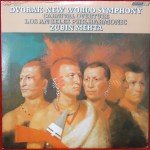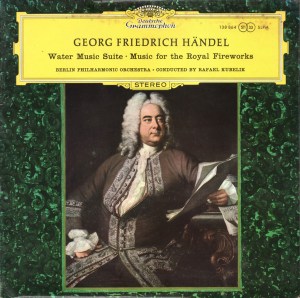More of the music of Antonin Dvorak (1841-1904)
More Reviews and Commentaries for the Music of Antonin Dvorak
This commentary was written close to a decade ago, when we were first trying to figure out which pressings and performances of the work were worth pursuing.
Please to enjoy.
We got off to a rough start with this piece of music. The early pressings we played were often sonically uninspiring, and that’s being charitable.
The London pressings with Kubelik (CS 6020) that we had thought were competitive with some of the better recordings we had on hand turned out to be disappointing. The strings were often hard and shrill, the overall sound crude and full of smear.
These Londons cost us a pretty penny owing to the high quality condition we require them to be in for our shootouts. In the end, all that time, effort and money was for naught. A big chunk of dough was headed down the drain.
The Stereo Treasury pressing of this same performance sounded better to us than any of the Bluebacks we played but far from competitive with the recordings we ended up preferring.
The Londons and Deccas from 1967 with Kertesz conducting the LSO also left much to be desired sonically. After hearing the 9th on both London and Decca, we did a quick needle drop on the other symphonies from the complete cycle that Kertesz conducted and concluded that none of them were worth our time.
 The trade-in pile was growing ever taller.
The trade-in pile was growing ever taller.
Then some good news came our way when we dropped the needle on the Decca/London recording with Mehta and the LA Phil. Our best London sounded shockingly good, much better than the one Decca pressing we had on hand.
His 8th Symphony (CS 6979) is also quite good by the way.
This is surprising because we rarely like anything by Mehta and the LA Phil. from this period — the recording in question is from 1975 — but of course we are happy to be surprised when the recordings sound as good as the ones we played.
The one that seemed to us to be the best balance of sound and performance was conducted by Istvan Kertesz, but not with the LSO.
His recording with the Vienna Philharmonic in 1961, his debut for Decca as a matter of fact, is the one that ended up winning our shootout of a dozen pressings or so.
We prefer a later mastering of the recording though, not the original.
Here are more reviews of music conducted by Kertesz, a man whose work we very much admire.



